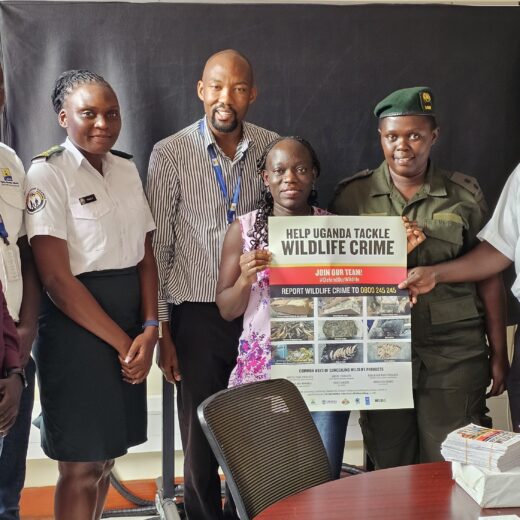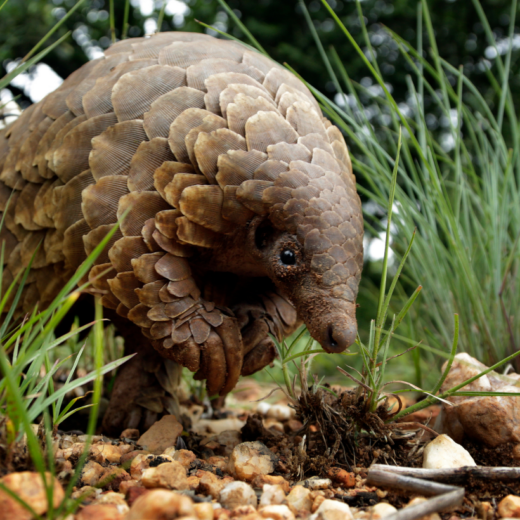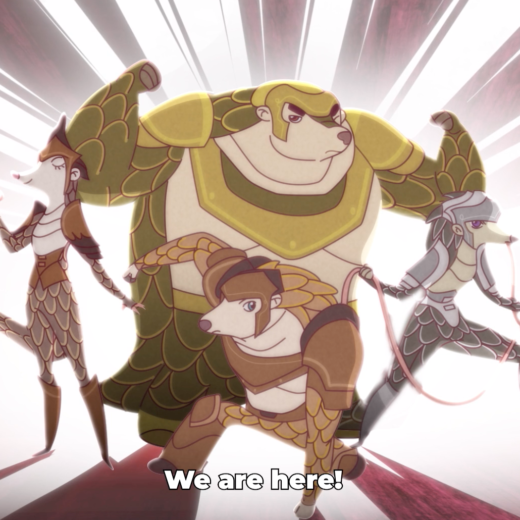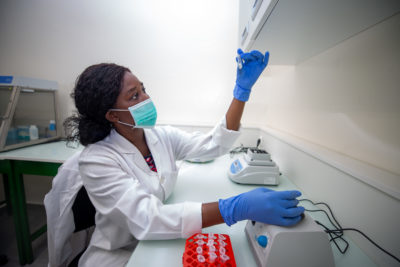
Gabon
Pangolin local name: Kague in Sango
Carla Louise Mousset Moumbolou is a forensic technical advisor, working on strengthening the use of forensic science in the investigation and prosecution of wildlife crime. She is helping develop a project that aims to provide support to law enforcement agencies in six countries – Gabon, Cameroon, Democratic Republic of Congo, Republic of Congo, Chad and Central African Republic – in crime scene investigations and wildlife forensics, which are both critical to aiding prosecutions. “[Pangolins] are very vulnerable and moreover, have a low fertility rate,” she says. “They have no voice to be heard. I made a commitment to be their voice at every opportunity.”


Cameroon
Pangolin local name: Okeka in tribal language
Serge Aka’a is part of the Central Africa Bushmeat Action Group (CABAG), responsible for building law enforcement capacity, advocacy, tracking the bushmeat trade and doing surveillance of bushmeat markets. Serge comes from a village in the Dja Biosphere Reserve and has been passionate about pangolins since childhood. “This animal, which does not know how to defend itself against the threats of man, is becoming increasingly scarce in our forests,” he says. Serge recalls how during an investigation on bushmeat consumption in a small town, he met a woman who was holding a small and slightly injured pangolin destined for the illegal trade. He was able to convince her to hand it over. He then went into a remote area of the forest and released the pangolin, which is fully protected under Cameroonian law. Serge sometimes wonders if the little pangolin is still alive.
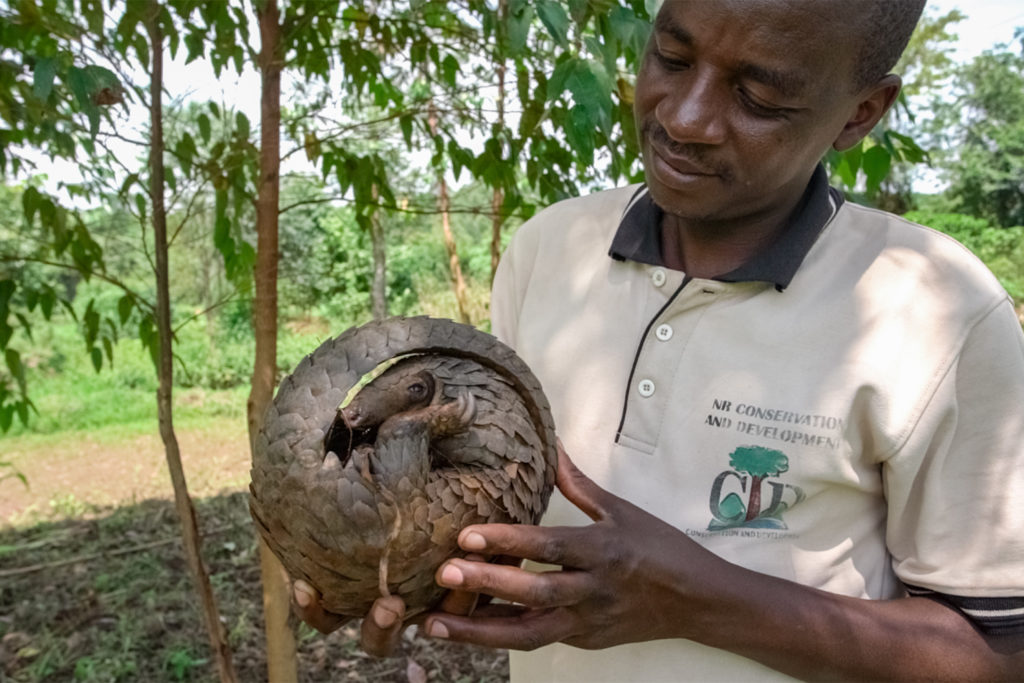

Uganda
Pangolin local name: Engamba in Rukiga
Moses Arineitwe is the founder of Kigezi Natural Resources Conservation and Development, which hosts nature and wildlife education in schools and communities, livelihoods projects with ex-poachers, and wildlife rescues in villages in South Western Uganda, near the national parks where mountain gorillas are found. Five years ago, Moses became aware that pangolins, the totem animal of some clans in Uganda, were in danger of going extinct after seeing posts about it on social media. Since then, he has been raising awareness of pangolin conservation and began a rescue programme, saving pangolins from hunters who kill them for their scales and meat and releasing them back into the wild. However, transport is his biggest challenge. With just an old and often broken car at hand and little money for fuel, Moses often struggles to find a way to reach pangolins that need rescuing. “I would like the world to know that pangolins are so important to the earth. They help control ants and other insects, and they help by making farming soils good for agriculture as they add manure to the soil.”
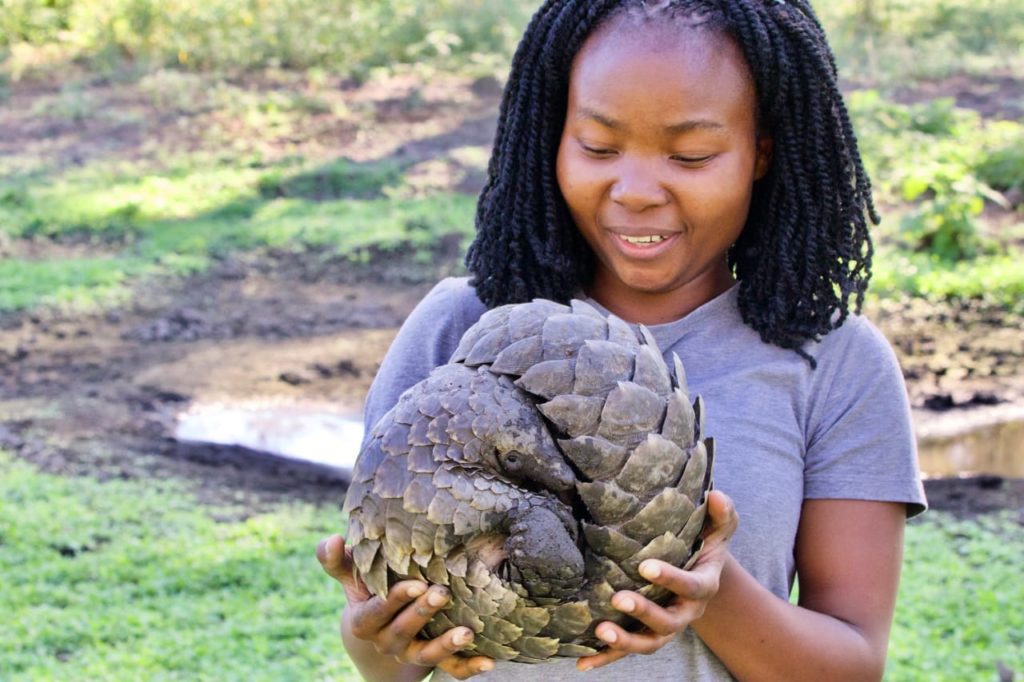

Mozambique
Pangolin local name: Halakavuma (southern region), halakavuma (Gorongosa National Park), ekha (northern region) in various regional languages
Mércia Ângela is a veterinarian and data analyst working in Gorongosa National Park, focused on the rehabilitation of pangolins rescued from illegal trafficking. Her most memorable experience was seeing the birth of a pangolin while on duty at the Pangolin Rehabilitation Centre. When she saw the baby’s head, it was a dream come true to witness such a rare sighting. But Mércia has also been witness to the horrifying impacts that poaching can have on these creatures, such as when one rescue came in with a steel cable stuck in its thorax causing a deep wound. “Here in Mozambique, the pangolin is believed to be a messenger of God, appearing in a region to announce positive things such as prosperity, rain and good agricultural production,” she says, adding that it is critical that everyone come together to conserve these animals.
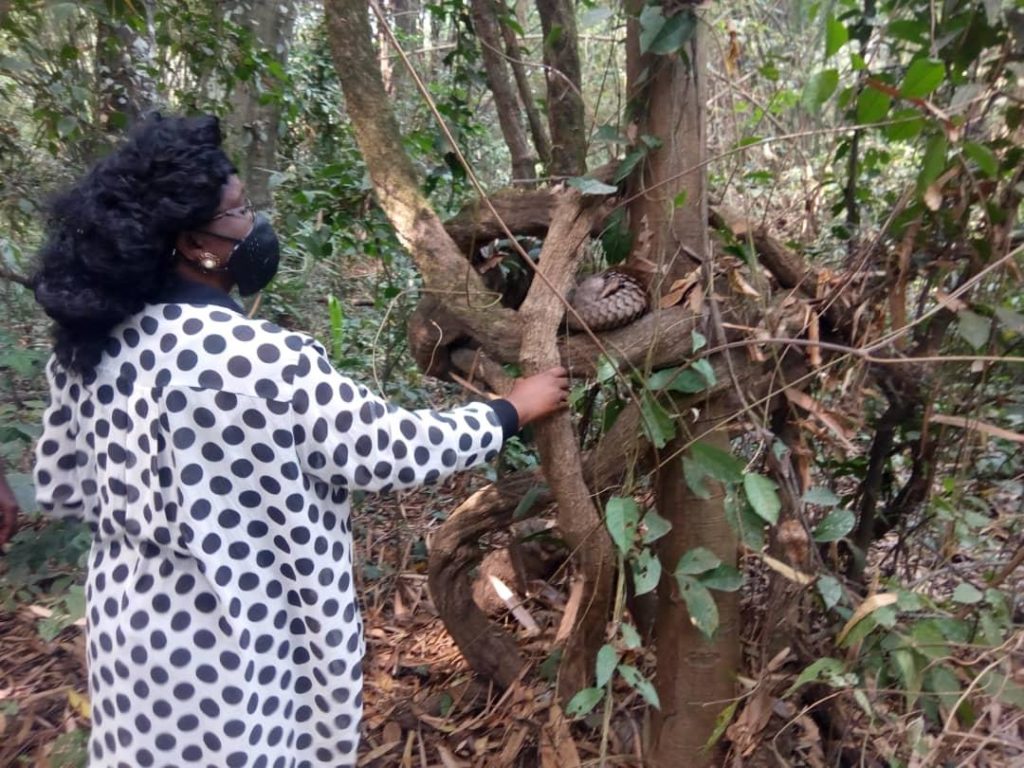

Nigeria
Pangolin local name: Akiika or Akaa in Yoruba
Professor Olajumoke Morenikeji is a lecturer and researcher in the Department of Zoology at the University of Ibadan in Nigeria. She runs a non-governmental organization that is working to address the trade of pangolins in Nigeria and ensure the conservation of this unique and endangered mammal. Prof. Morenikeji became passionate about the protection of pangolins when she found out that pangolins everywhere were on the brink of extinction and that they rarely survive in captivity. “I promised myself to help see to pangolin survival by doing what it takes,” she says. “Pangolins are adorable, helpless animals with very important roles in the ecosystem. I am pained because of the cruelty of man to these animals. Pangolins consume millions of termites and ants in a year, thus controlling the population of these pests. In the event that pangolins become extinct, the consequences would be grave.”
Watch “A Pangolin’s Tale”, a six-part mini-documentary series following WildAid ambassador Djimon Hounsou on an eye-opening adventure to learn about the many threats facing Africa’s pangolins.
Stay in touch and get the latest WildAid updates.
SIGN UP
